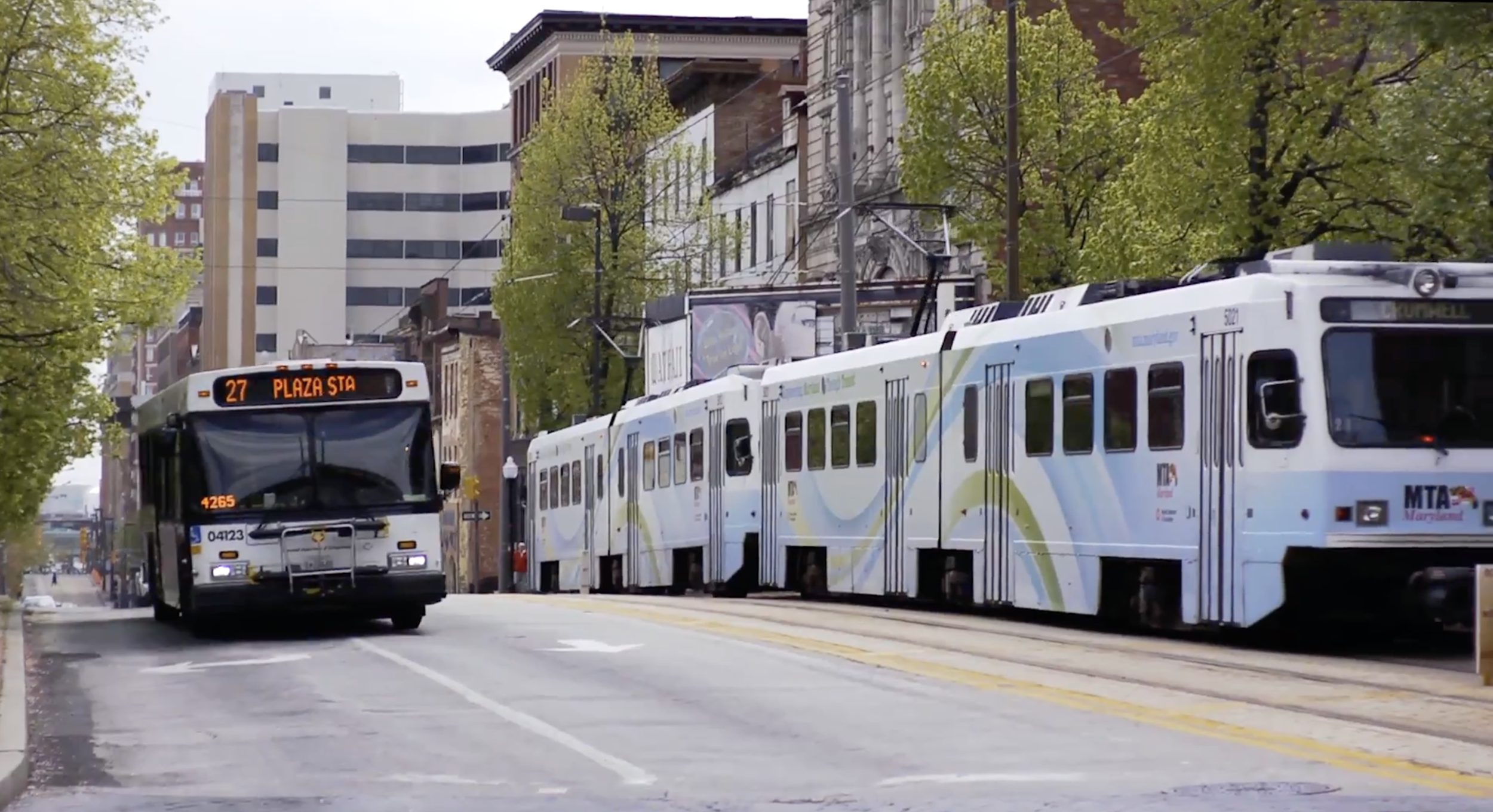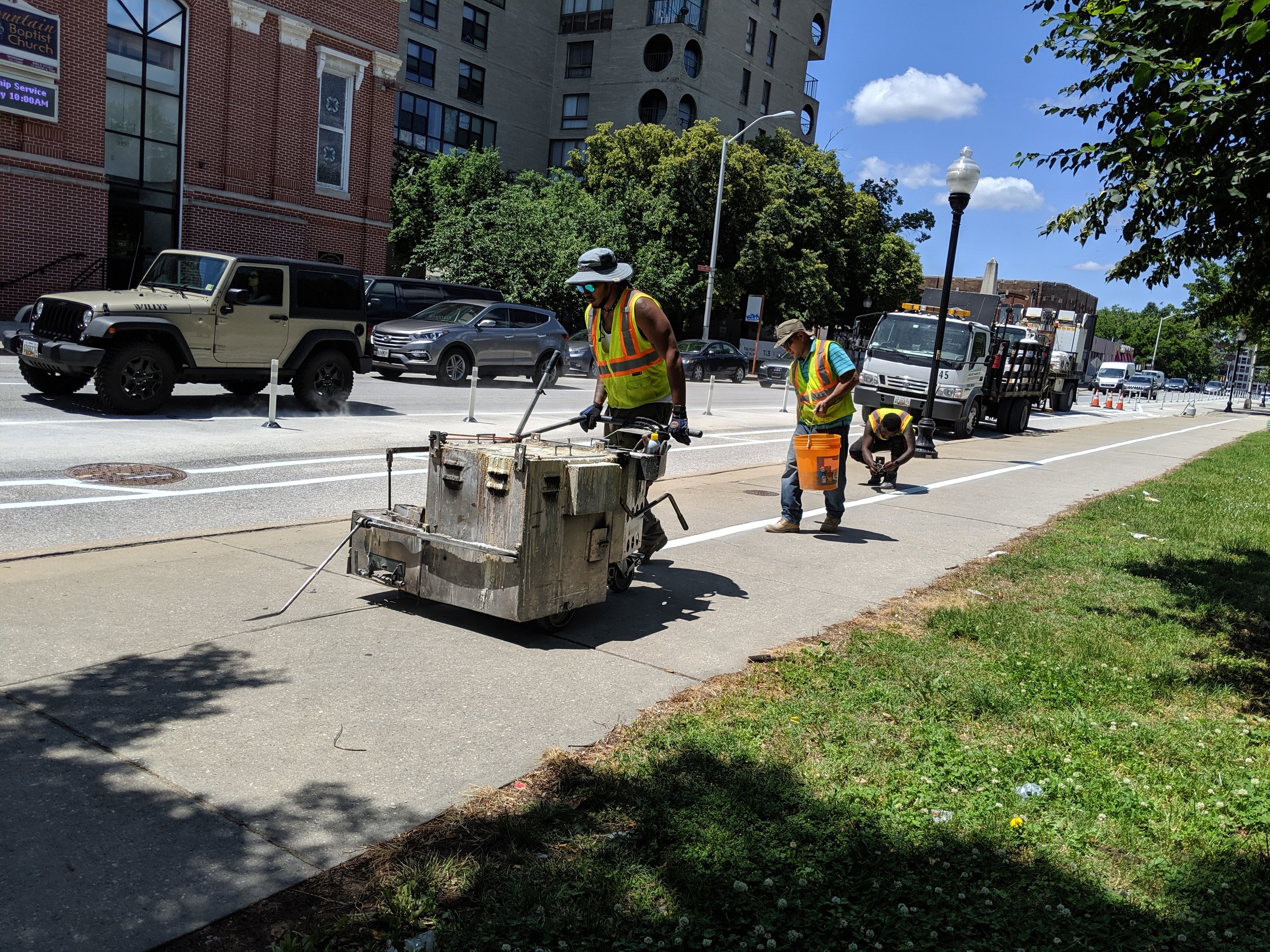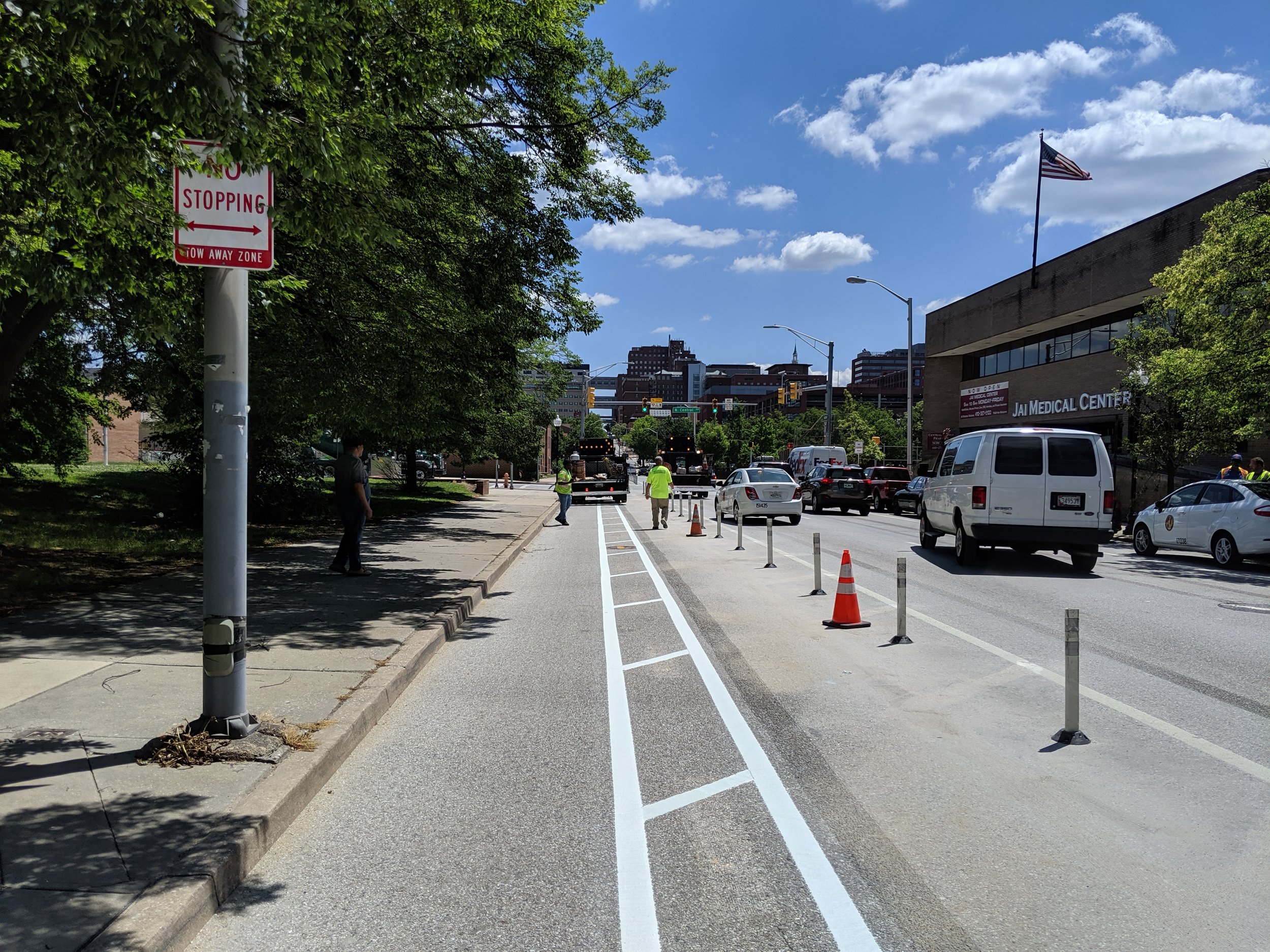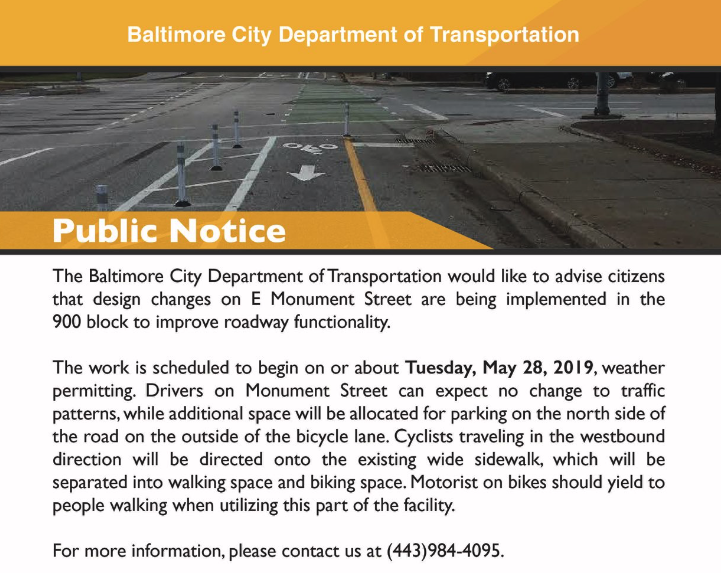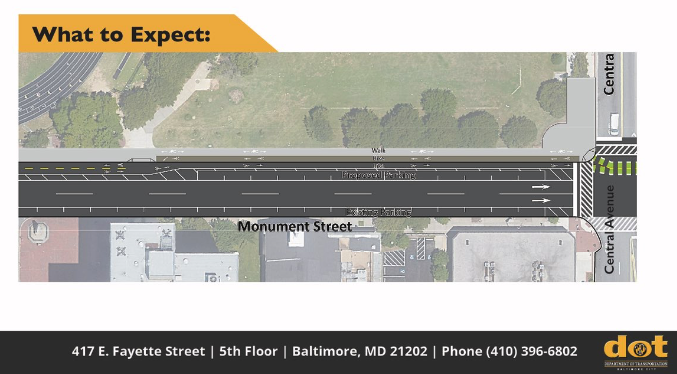Today construction began to modify a half block of the two way protected bike lane at the intersection Monument Street and Central Avenue. This modification was prompted by neighborhood stakeholders that requested 12 parking spaces be restored on the north side of the street. This is a clear violation of the Complete Streets law.
This modification was opposed by the Mayor’s Bicycle Advisory Commission through a motion at the meeting this past Wednesday, May 29th. It received the attention and advocacy of State Delegate Robbyn Lewis, who pursued all avenues available and met with key stakeholders, including church leadership. It also garnered 744 letters of opposition to Mayor Young and Frank Murphy, Interim Director of the Department of Transportation. Many alternative designs were suggested that would retain the current design and increase parking near a place of worship, who wanted to ensure their elderly congregants can safely get from their car to the church.
It’s important to note that there were opportunities for compromise that precluded this change in the lane, and even restored additional street parking. Efforts are even underway to assist with negotiating use of a parking lot next door to the church. These alternative solutions were declined by both neighborhood stakeholders and city officials. This was a unilateral decision that did not allow additional stakeholders like Bikemore and the thousands of constituents we represent to have equal consideration.
We are sensitive to the challenges these changes to public spaces face. We understand and want to be respectful and acknowledge that these changes intersect with many other challenges that Baltimore faces, most notably race and class. But these complex issues demand deep reflection and intentional discussions, not knee jerk reactions. Not decisions that leave out the people who stand the most to lose, their safety. That is what occurred here. While this change is small, it has much broader implications. It signifies that that the people that rely on safe places like this bike lane are less important than cars. It puts Baltimore City in jeopardy of losing state and federal funding for transportation, funding that is necessary to continue to design streets for people.
It also sends a clear message to other institutions or groups of people with power who want to oppose changes that make streets safer for everyone, including people driving cars: in order to undo years of planning, millions of dollars of investment, and facilities that serve thousands of residents — all you need to do is call power brokers in city government.
We spent hours at the facility this week observing its use. And we want to make something clear. The loudest voices in bike advocacy aren’t currently representative of our majority black city and certainly not representative of the diverse groups of people that benefit from these lanes. That is something that is problematic and something we are actively working to address. Today we posted three new opportunities of employment at Bikemore, the first time we have had the resources to hire new staff since 2016. Two of these positions will be actively focused on community organizing and outreach across the city in order to lift up the voices often left out of the discussions around Complete Streets. They create an opportunity to build a more diverse workforce. They will also allow us to deliver more programs that do what we feel is the best organizing tool of all, riding bikes together.
We have reached out to the Mayor to request a meeting. While this one section of road is being changed, continuing the conversation about how we move forward to build a city for people is more important than ever. The 744 people that have voiced their opposition to this change deserve an official response.
We also want to make sure people realize our work is ongoing and so much more than the online chatter and news stories that always seem to accompany advocacy actions like this. Tomorrow we will be at the Boundary Block Party in Penn North fixing bikes to get people back on two wheels. We are coordinating with neighbors in Cherry Hill to offer ride support on an upcoming event. We are continuing to work with neighbors in Reservoir Hill and Auchentoroly Terrace to ensure they have the resources available to engage in the traffic study process that will dictate the future of Druid Park Lake Drive. Last Saturday we celebrated the installation of a public art project that was created by artists who reside in Reservoir Hill, artists that were selected by residents of Reservoir Hill.
This is the long slow work of advocacy. It doesn’t make headlines. It doesn’t spark public meetings where emotions run wild. But it is the heart and soul of who we are. We fight because the people that use bike lanes are worth fighting for. They are affordable housing advocates, nurses, City employees, construction workers, restaurant employees, artists, parents shuttling their kids to daycare, senior citizens, the blind, people hauling grocery carts and pushing strollers. It’s a kid learning to ride a bike in a safe space. They are people we know. They are people who pay taxes. They are people that vote. And by way of just being human, they deserve the dignity of using our streets without fear.
We could not do what we do without the support of so many people. Let’s keep our heads up. Let’s keep fighting for streets for people.


